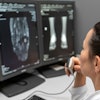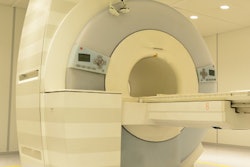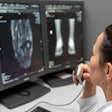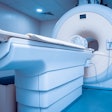Dear AuntMinnie Member,
Almost a quarter of adults in the U.S. have a disability, most commonly due to mobility challenges that can make it difficult to walk or climb stairs -- or independently get onto imaging equipment. Consequently, some of these patients may not receive important screening and diagnostic evaluations.
Efforts to ensure that people with disabilities have access to medical equipment such as imaging systems have been in the works for several years. These initiatives are endangered, however, following a decision late last year by the U.S. Department of Justice (DOJ), according to an editorial published this week in the New England Journal of Medicine.
After the DOJ withdrew a key guidance, healthcare facilities may no longer feel motivated to address medical equipment accessibility, according to the co-authors from Massachusetts General Hospital and the Saint Louis University School of Law.
Click here for our coverage, or visit our Imaging Leaders Community at leaders.auntminnie.com.
Optimizing lung cancer screening
Can a risk-prediction model help optimize follow-up CT lung cancer screening? Dutch researchers believe it can.
After developing a new polynomial model that incorporates patient characteristics and CT data, they found their method would have identified 10% of patients in the National Lung Screening Trial who could have safely avoided the first round of follow-up CT screening. It also outperformed four other risk models.
Click here for our report, or stop by our CT Community at ct.auntminnie.com.
AI-powered superresolution MRI
Researchers from Stanford University have developed a deep-learning algorithm that could potentially yield faster image acquisition, lower costs, and fewer motion artifacts in musculoskeletal MRI exams.
Their model, called DeepResolve, can transform low-resolution, thick-slice knee MR images into high-resolution, thin-slice images. In testing, the researchers found DeepResolve to be both quantitatively and qualitatively superior to commonly used resolution-enhancement techniques.
They believe this superresolution MRI method could have an immediate impact on both clinical and research studies. Click here for our report, or check out our Artificial Intelligence Community at ai.auntminnie.com.




















